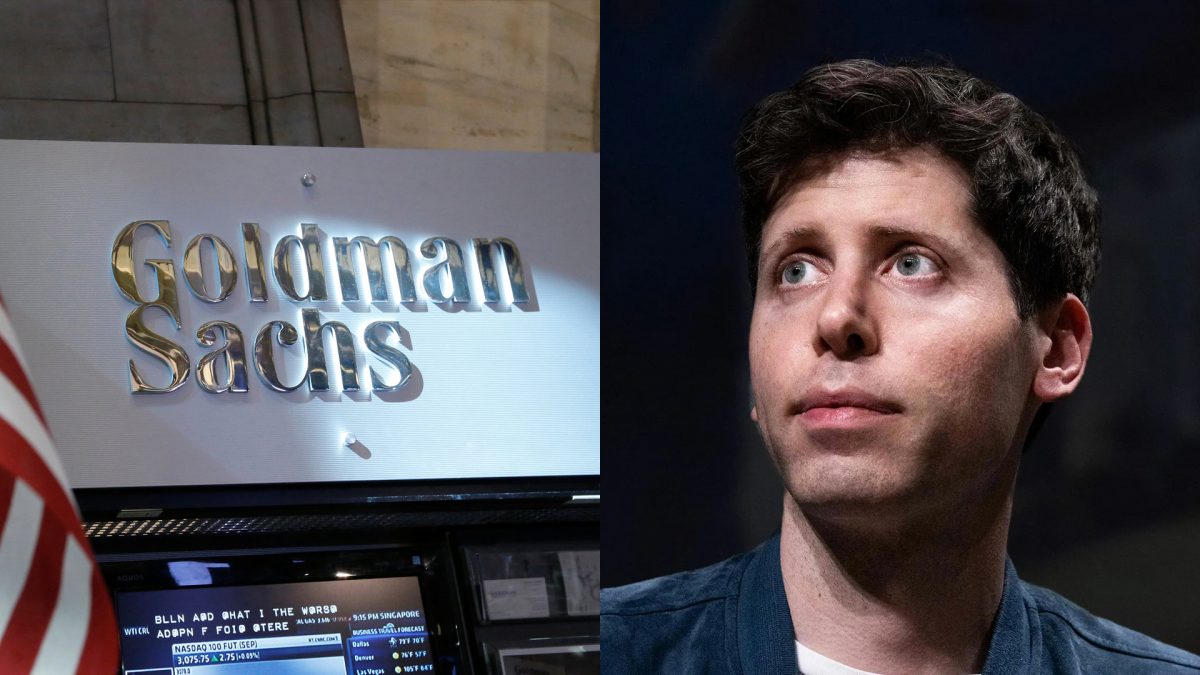The paper, titled “Gen AI: too much spend, too little benefit?” questions whether the enormous expenditures on AI infrastructure will ever yield the expected benefits and returns read more
)
One of the critical points raised in the paper is around the actual performance of GenAI. OpenAI's revenue, for example, has increased, but the use and value of AI products remain limited. Image Credit: Reuters, AFP
Goldman Sachs recently published a research paper scrutinizing the economic feasibility of generative AI, raising doubts about the substantial investments made in this technology. The paper, titled “Gen AI: too much spend, too little benefit?” questions whether the enormous expenditures on AI infrastructure will ever yield the expected benefits and returns.
Generative AI, touted as a transformative technology by Silicon Valley and heavily backed by the stock market, is under intense scrutiny. Despite the hype, Goldman Sachs’ research indicates that the financial returns on AI investments may be lacking. The report suggests that, although investors might continue to profit, the actual benefits of AI remain uncertain. The paper posits that either AI will eventually deliver on its promises, or the current bubble will persist longer than expected.
The optimism surrounding AI has notably driven up the stock prices of companies like Nvidia and other S&P 500 giants. These price increases are largely based on the assumption that generative AI will boost productivity, leading to automation, reduced labor costs, and increased efficiency. However, Goldman Sachs warns that these stock gains are premature and based on anticipated productivity improvements that have yet to materialize. For the S&P 500 to achieve above-average returns over the next decade, a very favorable AI scenario is necessary, which may not be realistic.
One of the critical points raised in the paper is the discrepancy between the hype and the actual performance of generative AI. AI’s impact on corporate profitability is crucial, and outside of an extremely optimistic scenario, S&P 500 returns are forecasted to be below their historical average post-1950.
MIT professor Daron Acemoglu, who contributed to the paper, emphasized that scaling AI training data might not resolve the technology’s growing pains. The idea that simply increasing the amount of training data will improve AI performance is questioned. Acemoglu pointed out that doubling the data, like adding more content from Reddit, may enhance informal conversational abilities but won’t necessarily improve functional tasks like customer service.
Jim Covello, Goldman Sachs’ head of global equity research, expressed skepticism about the cost and transformative potential of generative AI. He highlighted the technology’s high expenses and its current inability to solve complex problems. Covello likened the AI investment frenzy to previous tech hypes such as virtual reality, the metaverse, and blockchain, which saw significant spending but delivered limited real-world applications.
This skepticism is echoed by other financial experts. Sequoia Capital’s David Cahn, in his piece “AI’s $600 Billion Question,” examined the revenue required for the AI industry to break even on infrastructure costs. Companies need to significantly scale their revenue, which is not happening at the necessary pace. For instance, OpenAI’s revenue has increased, but the broader use and value of AI products remain limited.
Overall, Goldman Sachs’ report reflects a growing wariness among financial institutions about the actual benefits of generative AI. While the technology holds potential, the current investments and expectations may be overblown, leading to questions about the long-term viability and impact of generative AI.

 2 months ago
57
2 months ago
57
)
)
)
)
)
)
)
)
)
)
)
)
)
)
)
)
)
)
)
)
)
)
)
)
 English (US) ·
English (US) ·